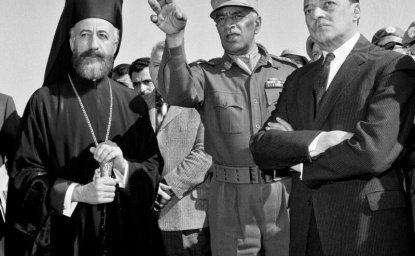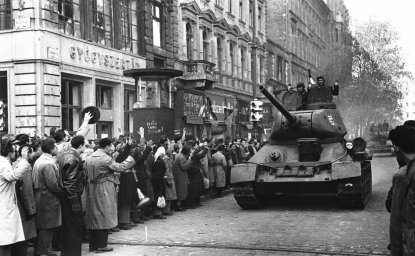Reassessing China-Myanmar Relations during the Cold War



CWIHP e-Dossier No. 49
Surface and Reality: Reassessing China-Myanmar Relations during the Cold War
Hongwei Fan
Translated by Charles Kraus
On the surface, relations between China and Myanmar during the Cold War-era were exceptional. The relationship was, above all, defined by “firsts”: in 1949, Myanmar became the first non-socialist country to recognize the People’s Republic of China (PRC); in 1960, Myanmar became the first country to resolve its boundary disputes with China; and, finally, during that same year, Myanmar became the first nation to sign a Treaty of Friendship and Mutual Non-Aggression with Beijing.
The relationship was trailblazing in other respects. In the 1950s and 1960s, China considered its relationship Myanmar as a “model” for the development of relations with other Asian and African countries and an example of “peaceful coexistence” between socialist and non-socialist states. In 1954, for example, Myanmar and China affirmed that the “Five Principles of Peaceful Coexistence” were the guiding principles underlying the development of bilateral relations. Six years later, China and Myanmar signed the Treaty of Friendship and Mutual Non-Aggression, which stipulated that there should be lasting peace and close friendship between the two sides. Through the treaty, which was meant to have a lifetime of ten-years, China and Myanmar pledged to resolve all disputes through peaceful negotiations and without resorting to force. China subsequently signed treaties of the same name and nature with Afghanistan and Cambodia.
Only seven years later, however, this “model” relationship began to crumble. The outbreak of anti-Chinese incidents in Yangon in 1967 signaled that not all was well between China and Myanmar.
In reality, throughout the Cold War—even prior to the breakdown of relations between China and Myanmar in 1967—relations were testier than ever publicly acknowledged, and both sides harbored reservations toward one another. This e-Dossier makes this point clear by introducing a number of representative documents on Chinese-Myanmarese relations and China’s policies toward Southeast Asia more generally from three archives: the Chinese Foreign Ministry Archive in Beijing, the Guangdong Provincial Archives, and the Guangxi Zhuang Autonomous Region Archives.
The documents reveal that Myanmar had a number of concerns about China, and just as these concerns shifted over time, so did the ways in which Myanmar expressed its apprehensions of its northern neighbor. In 1950, for instance, just after the Chinese Embassy in Myanmar had celebrated the first the anniversary of the founding of the PRC, Chinese diplomats cabled to Beijing to report that “the Myanmarese government was full of suspicion towards our country’s National Day celebrations.”[1]The Foreign Ministry learned that the Myanmarese Government had expressed dissatisfaction and unease over Chinese Ambassador to Myanmar Yao Zhongming’s anti-American remarks, which were made during a speech to Overseas Chinese in Yangon on October 1, 1950. As this cable illuminates, Myanmar pursued a very careful and balanced policy in its triangular relations with China and the US during the Cold War. Myanmar never adopted a drastic policy where it united with China against America, even after anti-American demonstrations erupted in Myanmar in 1953, or after the Myanmarese government announced in 1961 that it had direct evidence of American support for the Guomindang Army in the north. Likewise, Myanmar never joined the United States in resisting China, even after the breakdown of its ties with the PRC in 1967.
The Chinese, too, were often apprehensive about Myanmar, and Beijing’s “political stance” toward Myanmar was ridden with mistrust. China characterized independent Myanmar as a nationalist country, one which was “two-faced.” Although Myanmar had revolutionary aspirations against imperialism and colonialism, China believed it also often compromised with the imperialists. According to the revolutionary theory of the Chinese Communist Party (CCP), the criteria to judge whether a country was socialist or not included the country’s economic and political system, as well as whether it was led by a proletarian revolutionary party and a revolutionary regime. Whether U Nu or Ne Win, the CCP regarded the political leaders of Myanmar as part of the national bourgeoisie. Therefore, Myanmar had the two-faced characteristics of the national bourgeoisie, and were the object of “both unity and struggle” from the Chinese perspective.
This so-called “struggle” came in the form of pressure and threats against Myanmar and was meant to prevent it from sliding toward the United States and becoming an anti-communist, anti-China country. Therefore, in managing relations with Myanmar, China watched all US maneuvers in Myanmar with extraordinary vigilance. The Chinese were especially concerned about American assistance to Myanmar, including US preparations to help Myanmar build the Yangon-Mandalay Highway. Similarly, in 1956, Zhou Enlai clearly told (in what can be interpreted as a warning) the Myanmarese Ambassador to China, U Hla Maung, that if Myanmar were to enter into the Southeast Asia Treaty Organization (SEATO), then the two countries would no longer be on friendly terms.
China’s conflicted views of Myanmar did not disappear in the 1960s, even as Myanmar underwent profound political change. In 1962, after Ne Win’s military government came to power, the CCP believed that the nature of the Myanmarese regime had not changed. They still classified it as “bourgeois centrist.” The CCP did not recognize “Burmese Way to Socialism” as genuine “socialism.” Nor was China happy with Ne Win’s political and economic measures taken within the country, which weakened Chinese influence and harmed the interests of the Overseas Chinese. For example, Chinese diplomats warned that:
after the peace talks [in Myanmar] broke down, a good number of the [Chinese] Embassy’s friends from every political party and social organization were successively placed under arrest. The Ne Win government has exercised severe control over contact between military officers and the embassy. The [Chinese] embassy’s work of fostering friendship has already been impacted.[2]
The CCP maintained that Ne Win’s policy toward China was “to be careful and trust no one,” and expected that “because Ne Win is resisting communism at home, [he] will have some unfriendly words and deeds in relations with us.”
On the other hand, Chinese officials also wrote that Ne Win was “willing to maintain the friendship with us.” Beijing was not wont to easily give up on Yangon because:
Myanmar’s strategic position is extremely crucial, and the changes in their domestic circumstances have an important impact on us. Therefore, we must continue to struggle for Ne Win’s government, supporting its pursuits and peaceful neutrality. In accordance with the policy of friendship between Myanmar and China, we must address and mindfully handle specific problems connected with internal changes and do our work with the utmost integrity.[3]
Put simply, China’s overall assessment was that Ne Win’s coming to power in 1962 was more beneficial to China than if a pro-American leader had done so.
For this reason, the CCP actively supported the Ne Win clique, especially when it thought that another military coup might overthrow the Ne Win government or when the Ne Win regime was facing economic hardship. The CCP’s stance on the Overseas Chinese was especially emblematic of this policy. Beijing claimed that “Overseas Chinese work must be subordinate to the general policy of external struggle and supporting national independence movements in Southeast Asia, and serve our country’s socialist construction, the struggle for international peace, and the struggle against imperialism.”[4] When the political and economic interests of the Overseas Chinese in Myanmar suffered as a result of Ne Win’s nationalization of the economy, Beijing was not willing to fight for the interests of the Overseas Chinese. Rather than wanting to stir up conflict between the Overseas Chinese and the Ne Win government, Beijing insisted the Chinese ought to accept reality of the situation. As a matter of policy, the Foreign Ministry emphasized the “strengthening of China-Myanmar friendship education for expatriate Chinese [in order to] reverse their confrontational feelings toward the [Myanmarese] government.” The Chinese government added that because “Chinese expatriates wishing to emigrate face difficulties, we should educate the ethnic Chinese, developing a spirit of mutual aid and support, diligently enabling expatriates in every kind of social endeavor, thus benefiting their long term survival.”[5] In the eyes of the CCP, the interests of the overseas citizens were subordinate to the goal of friendly relations between China and Myanmar; or in other words, the lives and livelihoods of the Overseas Chinese were subordinate to the interests of Beijing.
As these documents show, we ought to keep in mind the contrast between the popular representation of Sino-Myanmarese relations and the reality of Sino-Myanmarese relations. The relationship was exceptional in many respects, but it was not without its share of troubles. Additional research on ties between China and Myanmar during the Cold War can be accomplished through the use of provincial and local archives in China’s Southwest, particularly those archives located in Yunnan Province, which shares a long border with Myanmar. While the Foreign Ministry Archive in Beijing was once a rich repository for the study of Sino-Myanmarese relations and China’s policies toward Southeast Asia, changes at the archive in recent years have unfortunately made it less useful. And of course, the Myanmarese archives, including the National Archives of Myanmar in Yangon and the Foreign Ministry Archives in Naypyidaw, may hold the real treasures that historians are searching for.
Hongwei Fan is Professor at the Research School of Southeast Asian Studies (Nanyang Yanjiu Yuan), Xiamen University, and co-author of Modern China-Myanmar Relations: Dilemmas of Mutual Dependence (2012). His research focuses on the Myanmar/Myanmar issues, the Overseas Chinese, and China-Southeast Asia relations.
Charles Kraus is a Program Assistant with the Wilson Center's History and Public Policy Program and a Ph.D. student in the Department of History, The George Washington University.
DocumentsChinese Foreign Ministry Archive
“Letter of Credence, Suit, and Thank You Speech from Burma’s Chief Ambassador to China U Myint Thein,” 28 June 1950
[Source: PRC FMA 117-00010-02(1). Obtained for CWIHP by Hongwei Fan and translated by Max Maller.]
“Burma’s Congratulatory Telegram to China for National Day,” 29 September 1950
[Source: PRC FMA 117-00017-08(1). Obtained for CWIHP by Hongwei Fan and translated by Max Maller.]
“Cable from the Chinese Embassy, Burma’s National Day Celebration Task Summary,” 11 October 1950
[Source:PRC FMA 117-00038-02(1). Obtained for CWIHP by Hongwei Fan and translated by Max Maller.]
“Burmese Foreign Minister’s Statement to Chinese Ambassador during a Large Gathering of Ethnic Chinese, His Perspective, and Our Ideas for a Resolution,” 23 October 1950
[Source: PRC FMA 105-00067-02(1). Obtained for CWIHP by Hongwei Fan and translated by Max Maller.]
“Remarks of Premier Zhou Enlai receiving the Burmese Government Labor Commission,” 22 May 1953
[Source: PRC FMA 105-00110-01(1). Obtained for CWIHP by Hongwei Fan and translated by Max Maller.]
“Minutes of Zhou Enlai’s Meeting with Burmese Ambassador U Hla Maung,” 22 June1956
[Source: PRC FMA 105-00307-02(1). Obtained for CWIHP by Hongwei Fan and translated by Max Maller.]
“Deng Xiaoping Submits a Written Report to the Central Committee on the China-Burma Border Issue,” 28 June 1956
[Source: PRC FMA 105-00448-02. Obtained for CWIHP by Taomo Zhou and translated by Max Maller.]
“Issues related to Recognizing the Burmese Military Government (Bilingual Chinese-English Text),” 3 March 1962
[Source: PRC FMA 105-01780-01. Obtained for CWIHP by Hongwei Fan and translated by Max Maller.]
“Situation Report on Burmese General AngJi’s Uncle Chen An’guang,” 25 June 1962
[Source: PRC FMA 105-01475-03. Obtained for CWIHP by Hongwei Fan and translated by Max Maller.]
“Burma’s Relations with the US,” 28 August 1962
[Source: PRC FMA 105-01479-09. Obtained for CWIHP by Hongwei Fan and translated by Max Maller.]
“Burma Materials: Summary of Burma’s Situation, General Outline, Basic Narrative of Issues between China and Burma, Record of Major Events in China-Burma Relations,”
March 1963
[Source: PRC FMA 203-00473-02. Obtained for CWIHP by Hongwei Fan and translated by Max Maller.]
“Record of a Conversation between Chinese Ambassador to Burma Geng Biao and Burmese Ambassador to China Jiao Wen,” 17 September 1963
[Source: PRC FMA 105-01542-04. Obtained for CWIHP by Hongwei Fan and translated by Max Maller.]
“The Foreign Ministry’s Summary for the Embassy of the Burmese Government’s Circumstances for 1963 and Official Directive for 1964 Plans and Projects,” 8 February 1964
[Source: PRC FMA 105-01864-01. Obtained for CWIHP by Hongwei Fan and translated by Max Maller.]
“On the Topic of Strengthening Our Work in Burma,” 5 June 1964
[Source: PRC FMA 105-01865-01. Obtained for CWIHP by Hongwei Fan and translated by Max Maller.]
“Excerpts of General Ne Win’s Internal Conversations, the Current Situation and its Solutions,” 26 June 1964
[Source: PRC FMA 105-01226-01. Obtained for CWIHP by Hongwei Fan and translated by Max Maller.]
“Request for Instructions on Supporting the Ne Win Government through Trade,” 1 July 1964
[Source: PRC FMA 203-00582-03. Obtained for CWIHP by Hongwei Fan and translated by Max Maller.]
“Burmese Attitudes toward Problems in Vietnam,” 14 February 1965
[Source: PRC FMA 105-01305-04. Obtained for CWIHP by Hongwei Fan and translated by Max Maller.]
“Research Materials from the Ministry of Foreign Affairs Subunit conerning Burma’s Political Situation and International Relations Trends, etc.,” 17 February 1965
[Source: PRC FMA 105-01314-02. Obtained for CWIHP by Hongwei Fan and translated by Max Maller.]
“Chinese Ambassador to Myanmar Geng Biao discusses India's Proposal for the Establishment of an Asian-African Armed Forces with the Burmese Foreign Minister.” May 10, 1965
[Source: PRC FMA 105-01305-06. Obtained for CWIHP by Hongwei Fan and translated by Max Maller.]
“The Chinese Embassy in Burma’s Intuitions about Burmese Politics and Recommendations for Ne Win’s Visit to China,” 22 June 1965
[Source: PRC FMA 105-01906-02. Obtained for CWIHP by Hongwei Fan and translated by Max Maller.]
Guangdong Provincial Archives
“Reply Concerning Ideas for Strengthening Propaganda to International Chinese,” 18 March 1952
[Source: Guangdong Provincial Archives 204-3-16-08-103 . Obtained for CWIHP by Hongwei Fan and translated by Max Maller.]
“Plan of Action for Welcoming Home the Chinese Internationals,” 25 September 1954
[Source: Guangdong Provincial Archives 235-1-115-077-082. Obtained for CWIHP by Hongwei Fan and translated by Max Maller.]
“Notice on Strengthening Party, Group Members’ and Cadres’ Connections to Chinese Internationals,” 7 March 1955
[Source: Guangdong Provincial Archives 204-1-140-149. Obtained for CWIHP by Hongwei Fan and translated by Max Maller.]
“On the Issues of Market Conditions in Myanmar and Burmese Businessmen Participating in the Autumn Trade Fair,” 25 September 1958
[Source: Guangdong Provincial Archives 304-1-18-18-20. Obtained for CWIHP by Hongwei Fan and translated by Max Maller.]
“Recommendations for Preparing a Large Welcome for International Chinese,” 20 December 1959
[Source: Guangdong Provincial Archives 215-1-118-054-056. Obtained for CWIHP by Hongwei Fan and translated by Max Maller.]
“Ideas for Returned International Chinese Students’ Work,” 29 March 1960
[Source: Guangdong Provincial Archives 232-1-0044-32-35. Obtained for CWIHP by Hongwei Fan and translated by Max Maller.]
“Organizing Cargo to be Shipped by Air Transport from China to Myanmar, Cambodia, and Pakistan,” 1965
[Source: Guangdong Provincial Archives 325-1-890-009-010. Obtained for CWIHP by Hongwei Fan and translated by Max Maller.]
“Decision of the First National People’s Congress regarding Premier and Minister of Foreign Affairs Zhou Enlai’s Announcement concerning the China-Myanmar Border (Draft),” 1957
[Source: Guangdong Provincial Archives 235-1-413-024. Obtained for CWIHP by Hongwei Fan and translated by Max Maller.]
“Plans for Receiving the Burmese Weightlifting Team,” 17 June 1974
[Source: Guangdong Provincial Archives 316-A1.2-56-106. Obtained for CWIHP by Hongwei Fan and translated by Max Maller.]
Guangxi Zhuang Autonomous Region Archives
“Policy for the China Expatriate Committee’s Expatriate Strategy,” 1958
[Source: Guangxi Zhuang Autonomous Region Archives X42-1-56. Obtained for CWIHP by Hongwei Fan and translated by Max Maller.]
“Recommendations for the China Expatriate Committee’s Expatriate Affairs,” 1958
[Source: Guangxi Zhuang Autonomous Region Archives X42-1-55. Obtained for CWIHP by Hongwei Fan and translated by Max Maller.]
“Policy Documents for Expatriate Affairs related to the CCP Central Committee, Expatriate Committee, and District Committees (1956, 1957, 1959),” 4 January 1959
[Source: Guangxi Zhuang Autonomous Region Archives X42-1-72. Obtained for CWIHP by Hongwei Fan and translated by Max Maller.]
[1]“Cable from the Chinese Embassy, Burma’s National Day Celebration Task Summary,” October 11, 1950, PRC FMA 117-00038-02(1). Obtained for CWIHP by Hongwei Fan and translated by Max Maller. http://digitalarchive.wilsoncenter.org/document/118221.
[2] “The Foreign Ministry’s Summary for the Embassy of the Burmese Government’s Circumstances for 1963 and Official Directive for 1964 Plans and Projects, ” February 8, 1964, PRC FMA 105-01864-01. Obtained for CWIHP by Hongwei Fan and translated by Max Maller. http://digitalarchive.wilsoncenter.org/document/118238.
[3]“The Foreign Ministry’s Summary for the Embassy of the Burmese Government’s Circumstances for 1963 and Official Directive for 1964 Plans and Projects, ” February 8, 1964, PRC FMA 105-01864-01. Obtained for CWIHP by Hongwei Fan and translated by Max Maller. http://digitalarchive.wilsoncenter.org/document/118238.
[4]“Policy for the China Expatriate Committee’s Expatriate Strategy,” 1958, Guangxi Zhuang Autonomous Region Archives X42-1-56. Obtained for CWIHP by Hongwei Fan and translated by Max Maller. http://digitalarchive.wilsoncenter.org/document/118257.
[5]“The Foreign Ministry’s Summary for the Embassy of the Burmese Government’s Circumstances for 1963 and Official Directive for 1964 Plans and Projects, ” February 8, 1964, PRC FMA 105-01864-01. Obtained for CWIHP by Hongwei Fan and translated by Max Maller. http://digitalarchive.wilsoncenter.org/document/118238.
Authors


Cold War International History Project
The Cold War International History Project supports the full and prompt release of historical materials by governments on all sides of the Cold War. Read more


History and Public Policy Program
A leader in making key foreign policy records accessible and fostering informed scholarship, analysis, and discussion on international affairs, past and present. Read more




